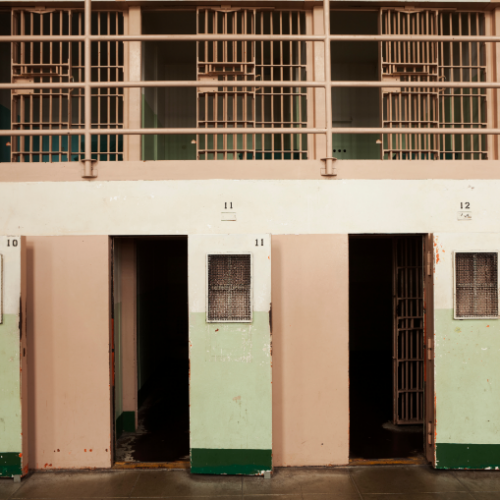Connecting the Dots: Lessons Learned from a Juvenile Justice Improvement Initiative
Hosted by the National Reentry Resource Center with funding support from the U.S. Department of Justice’s Office of Juvenile Justice and Delinquency Prevention
Download a PDF of the presentation.
The Improving Outcomes for Youth (IOYouth) initiative—which is operated by the National Reentry Resource Center (NRRC)—helps state and local jurisdictions to align their juvenile justice systems’ policies and practices with what research shows works to reduce recidivism and set youth up for success. This webinar is for state and local policymakers, system leaders, agency managers, and more; and it
- Explains the research and track record of reform efforts underpinning the IOYouth approach as well as discusses why conducting a comprehensive review of system-wide policies and expenditures is critical to protecting public safety and efficient resource allocation
- Describes three states’ experiences participating in IOYouth, including the challenges that they were seeking to address; the assessment process; and the legislative, administrative, and funding changes that resulted from their efforts
- Discusses the lessons learned from each state and from the NRRC on facilitating system-wide improvement initiatives, as well as how other jurisdictions can apply these lessons to their own efforts
Presenters:
- Shanelle Johnson, Policy Analyst, The Council of State Governments Justice Center
- Ross Armstrong, Administrator, Nevada’s Division of Child and Family Services
- Nick J. Costales, Deputy Director of Field Services, New Mexico Children, Youth, and Families Department
- Adam Zarrin, Policy Advisor, Office of Colorado Governor Jared Polis
A positive school experience, where a child feels secure, is essential for their well-being. However, for many children…
Read More The Path to Statewide Community Crisis Response in New Jersey: A Community Advocate’s Perspective
Read More
The Path to Statewide Community Crisis Response in New Jersey: A Community Advocate’s Perspective
Read More
 Supporting Children of Incarcerated Parents: Reimagining School and Community Collaboration
Supporting Children of Incarcerated Parents: Reimagining School and Community Collaboration
A positive school experience, where a child feels secure, is essential for their well-being. However, for many children with incarcerated parents—one in 14 in the U.S.—school can feel far from safe due to stigma, trauma, and a lack of understanding.
Read More Bridging Communities and Correctional Systems: Q&A with CSG Justice Center Advisory Board Member Commissioner Nicholas Deml
Read More
Bridging Communities and Correctional Systems: Q&A with CSG Justice Center Advisory Board Member Commissioner Nicholas Deml
Read More
 Assigned to the Cloud Crew: The National Incarceration Association’s Hybrid Case Management for People with Behavioral Health Needs
Assigned to the Cloud Crew: The National Incarceration Association’s Hybrid Case Management for People with Behavioral Health Needs
When returning to their communities from criminal justice settings, people with behavioral health needs face barriers in accessing basic needs—including food, housing, employment, transportation, education, clothing, and substance use and mental health services—which increases their risk of experiencing a crisis.
Read More Meet the Medicaid and Corrections Policy Academy Mentor States
Meet the Medicaid and Corrections Policy Academy Mentor States
New Hampshire Department of Corrections Commissioner Helen Hanks presents at the Medicaid and Corrections Policy Academy in-person meeting.
Read More










